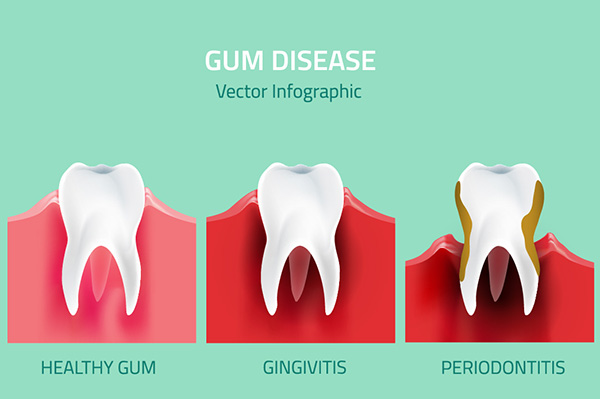 Your teeth and gums are crucial to your overall preventative dental care. Gum disease is a severe dental problem that can lead to more than just tooth decay. If left unchecked, gum disease will eventually spread to other organs in the body and cause severe damage.
Your teeth and gums are crucial to your overall preventative dental care. Gum disease is a severe dental problem that can lead to more than just tooth decay. If left unchecked, gum disease will eventually spread to other organs in the body and cause severe damage.
Fortunately, there are many ways you can prevent gum disease from developing by practicing good oral hygiene habits, such as brushing at least twice a day with fluoride toothpaste and flossing daily! With these simple steps, you'll be able to avoid costly treatments like root canal therapy or, even worse - total extraction of all your teeth!
Here are five preventative dental care tips to prevent gum disease:
Brush your teeth every day
Preferably after every meal. Brushing your teeth helps fight against gum disease by removing plaque and bacteria from your teeth. Plaque is a sticky substance that contains bacteria. When you eat, the plaque breaks down, producing acid, damaging your tooth enamel causing cavities to form. Use fluoride toothpaste to help fight cavities and make your enamel stronger.
Floss once per day
Flossing removes plaque from between the teeth that can lead to decay over time. Make sure you use an oral irrigator to clean around the gum line. Flossing helps prevent gum disease by removing plaque from between the teeth and under the gumline.
Drink adequate amounts of water daily
Drinking water helps to remove the acids that form in your mouth when plaque breaks down. These can cause cavities and eventually decay, which is why drinking plenty of water each day is an essential part of preventative dental care. Drinking adequate amounts of water also flushes out bacteria from between your teeth and under the gums. This reduces swelling and inflammation, which can lead to gum disease.
Avoid tobacco products
Nicotine in cigarettes is a potent chemical that damages blood vessels and inhibits oxygen flow throughout your body. This makes it harder for cells to function correctly, including those found in your gums. Nicotine also reduces saliva production (which helps keep tooth decay away) and increases the risk of gum disease.
Maintain a healthy diet
Avoid sugary beverages and snacks that will cause your teeth to weaken over time. If you must eat junk food, brush your teeth after every meal. Eating a balanced diet with plenty of vegetables is one of the best ways to ensure good oral health and overall wellness.
Maintain a healthy diet consisting of lean protein, whole grains, fruits, vegetables, and low-fat dairy products. This will keep your body strong, so it can fight infections caused by gum disease or anything else that could affect you.
Visit your dentist twice a year
This is one of the most important ways to prevent gum disease. Your dental professional can easily spot signs of inflammation, bleeding gums, or other issues while examining you during regular cleanings. By catching problems early on, they can treat your symptoms with a simple procedure or prescribe antibiotics to reduce inflammation.
Don't let gum disease get the best of you! By maintaining good oral hygiene habits, avoiding tobacco products, and visiting your dentist every six months for regular cleanings, you can be sure to keep plaque away. You will also reduce your risk of getting cavities or experiencing tooth loss caused by advanced stages of gum disease like periodontitis (gum disease).
Request an appointment or call Dentistry on Park, LLC at 781-443-8131 for an appointment in our Stoughton office.
Recent Posts
Preventative dental care is important for optimal oral health. It prevents bad breath, oral disease, tooth loss, among others.The enamel is the outermost part of the tooth. It is a white visible part above the gum. It is the part seen when you smile. The enamel is also the strongest layer of the tooth. It…
Preventative dental care refers to all the ways you can maintain the health of your teeth and gums, which will ultimately help prevent more severe issues down the road. One great way to provide this type of care is through treatments, including scaling and root planing, periodontal therapy, and laser gum surgery. The following are…
If you are looking to avoid having cavities, sensitive gums, or dental issues, your best bet is actively engaging in preventative dental care. Without regular dental cleanings, flossing, or rinses, you may be putting your dental hygiene at risk for things like gingivitis or even root canals. There are several healthy habits that you can…


